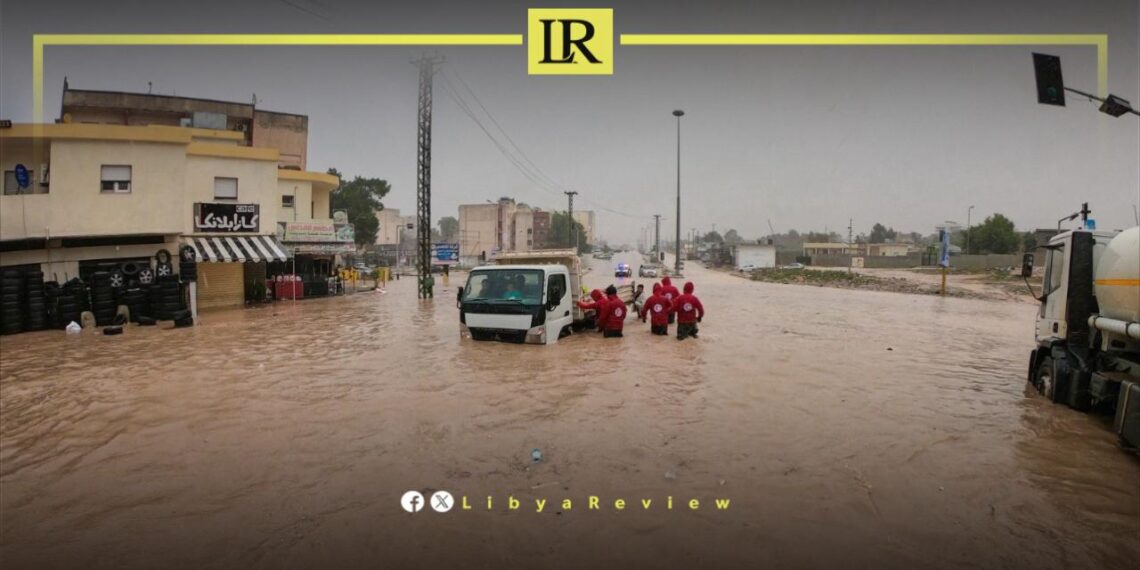On Saturday, Libya’s Ministry of Social Affairs, of the interim Government of National Unity (GNU), organized a critical relief convoy to assist southern regions devastated by recent floods. The convoy, loaded with essential supplies, aims to alleviate the suffering of communities severely impacted by the disaster.
According to an official statement, the relief convoy includes vital items such as blankets, mattresses, cleaning supplies, tents, and specialized provisions for children and individuals with disabilities. These resources are being transported to southern Libya, where they will be distributed to families displaced or affected by the floods. The Ministry is coordinating this effort with its local branches in the region.
The Ministry of Social Affairs also announced that a specialized team, including personnel from the ministry and the Social Studies Center, is preparing to travel to the affected areas. Their mission is to assess the extent of the damage, provide necessary assistance, and compile detailed reports on the current conditions.
The situation in southern Libya is particularly alarming, with the municipality of Tahala, located north of Ghat, recently declared a disaster zone by the local municipal council. The council has urgently called on all organizations, associations, and institutions to provide immediate aid to the stricken area.
The southern regions of Libya have historically been vulnerable to natural disasters, particularly floods, which have repeatedly caused significant damage to communities already grappling with limited resources and infrastructure. The recent floods have only exacerbated these challenges, devastating homes, crops, and livestock, and deepening the economic struggles of the local population.
Libya’s ongoing political instability, marked by competing administrations, has often hindered the country’s disaster response efforts. While the GNU’s relief convoy represents a crucial step in addressing the immediate needs of those affected, the broader situation underscores the necessity for a more unified and effective approach to disaster management across the country.


